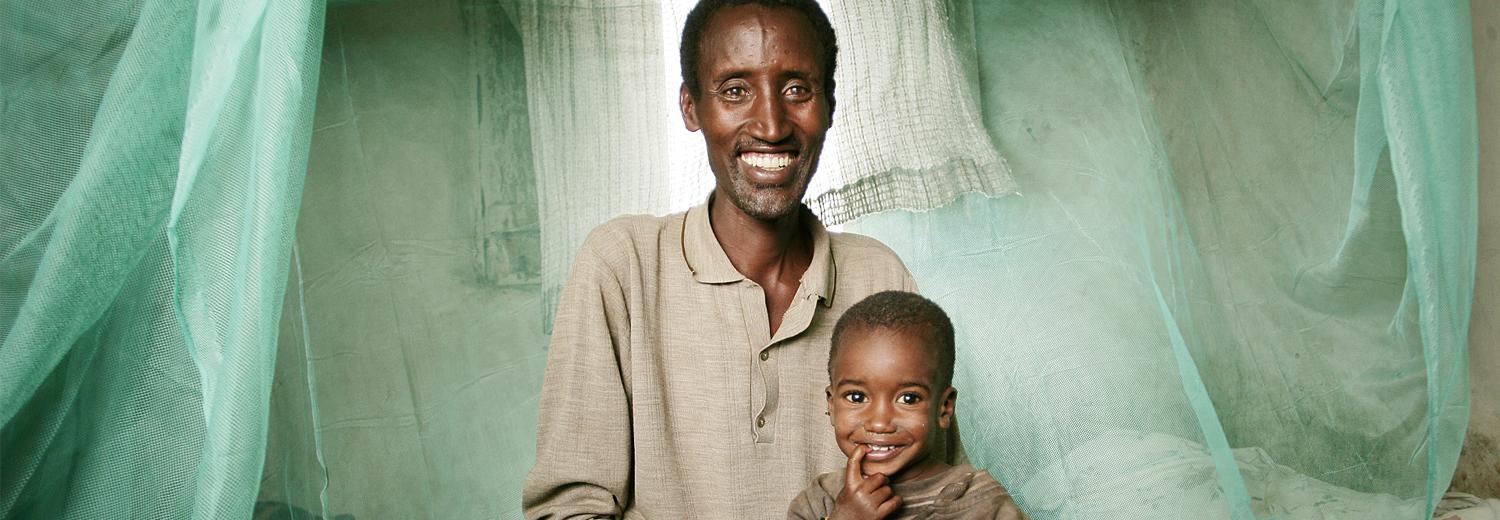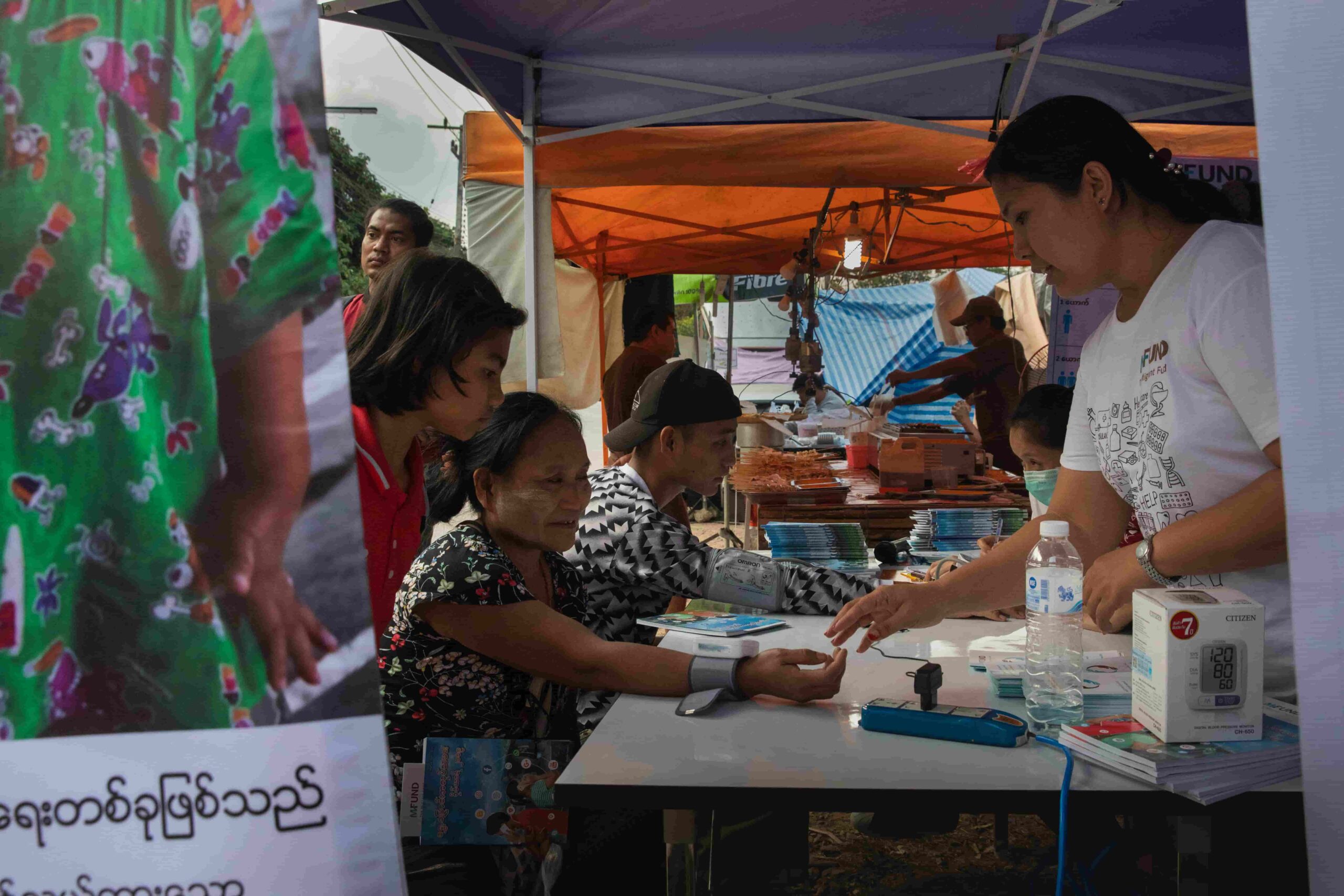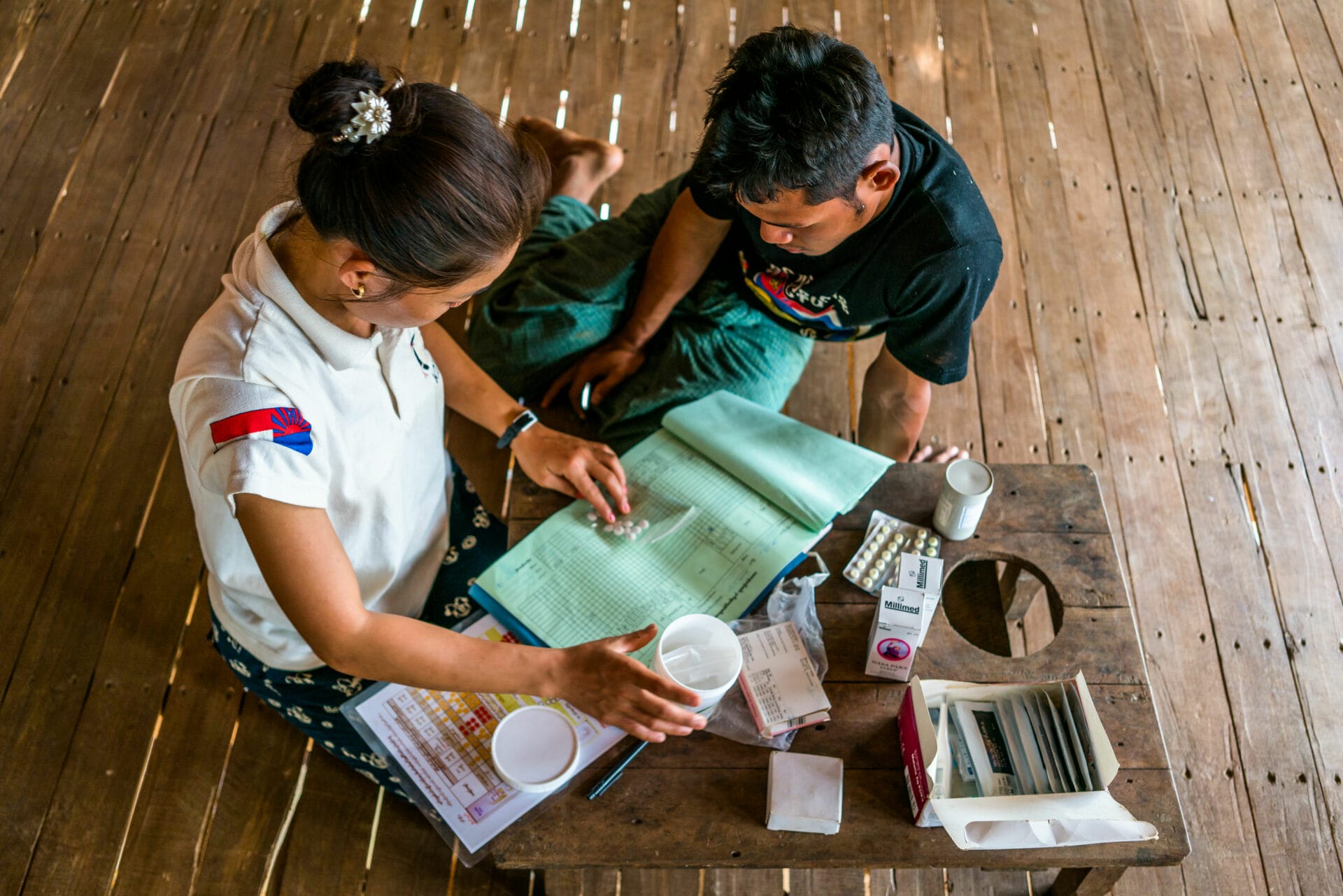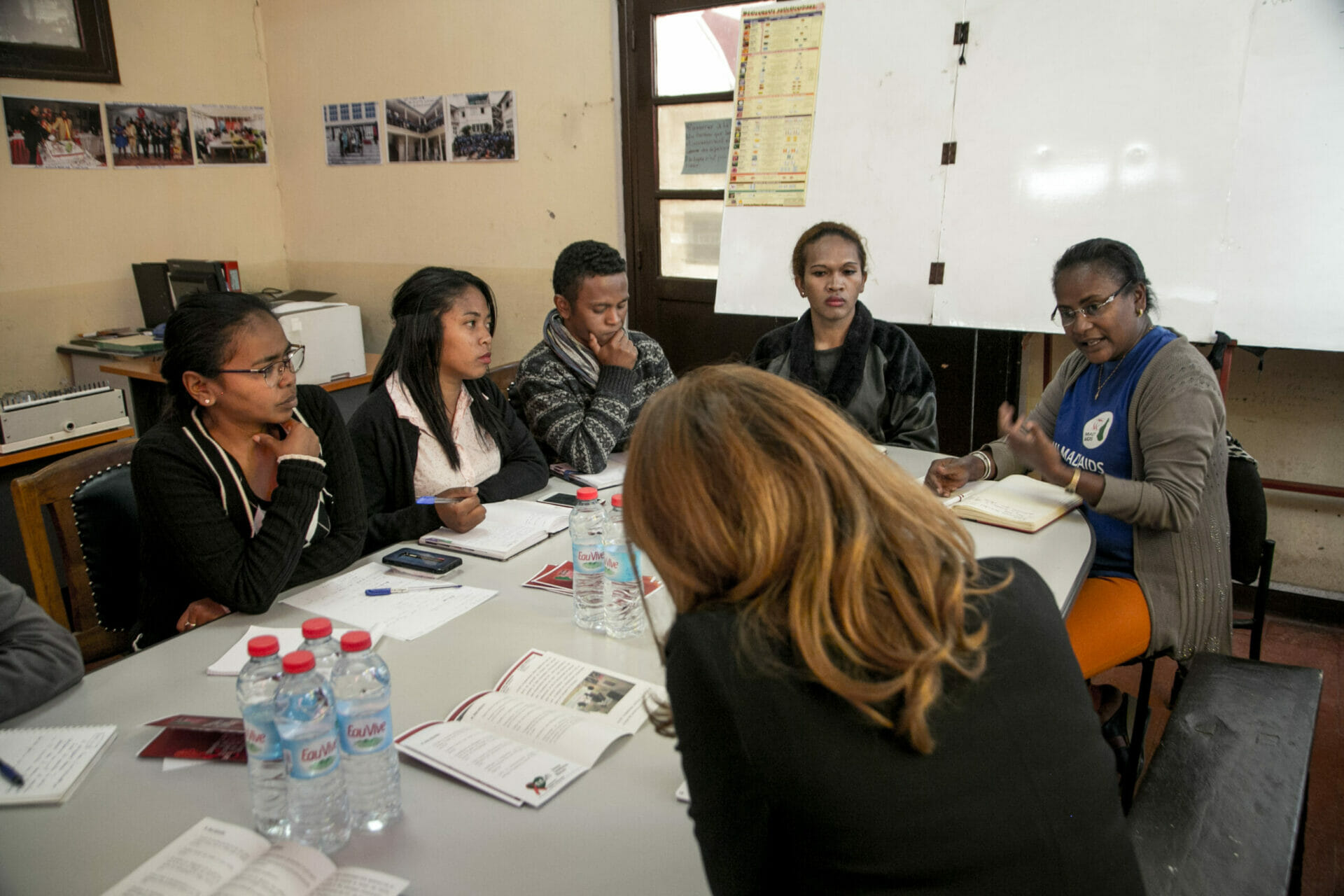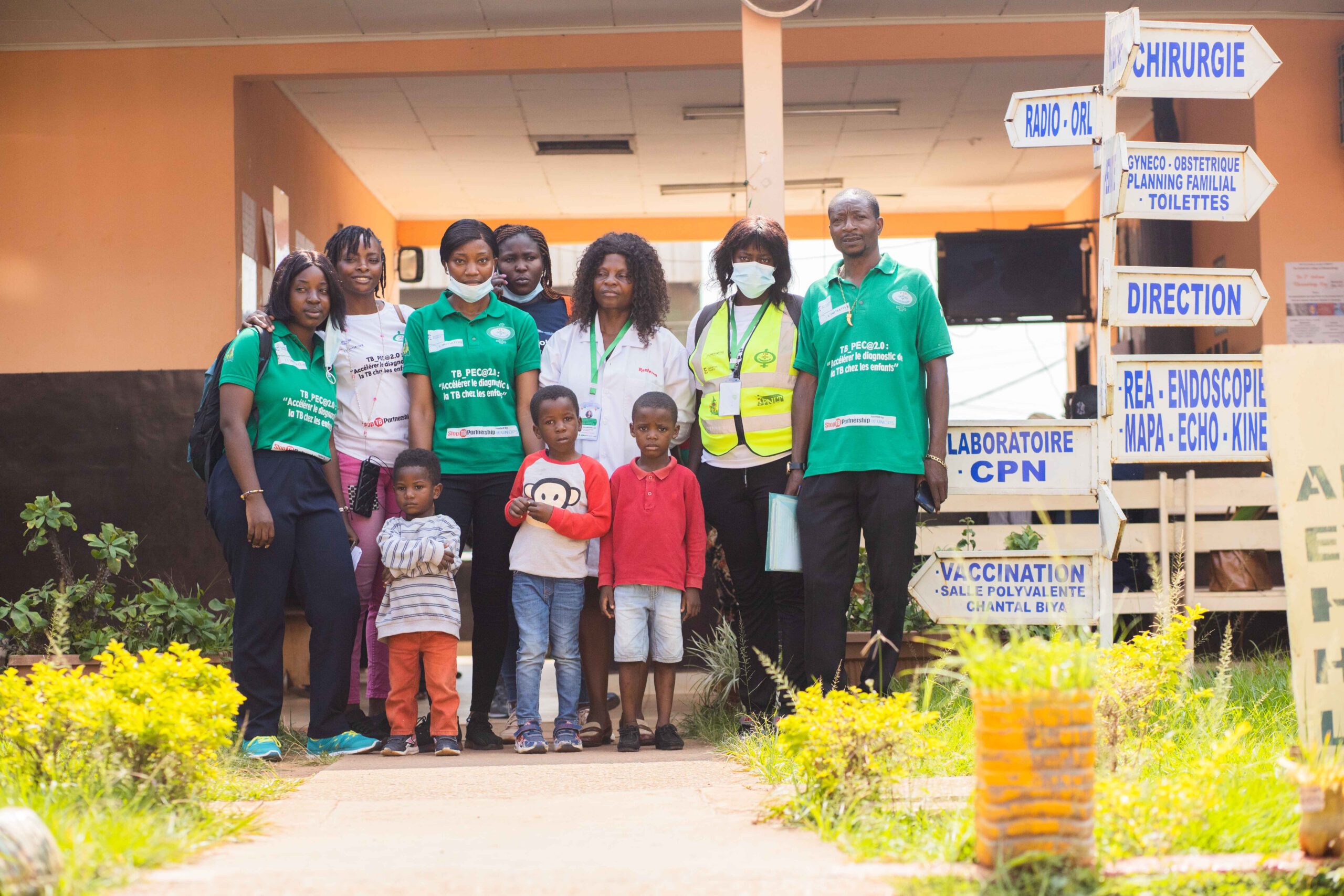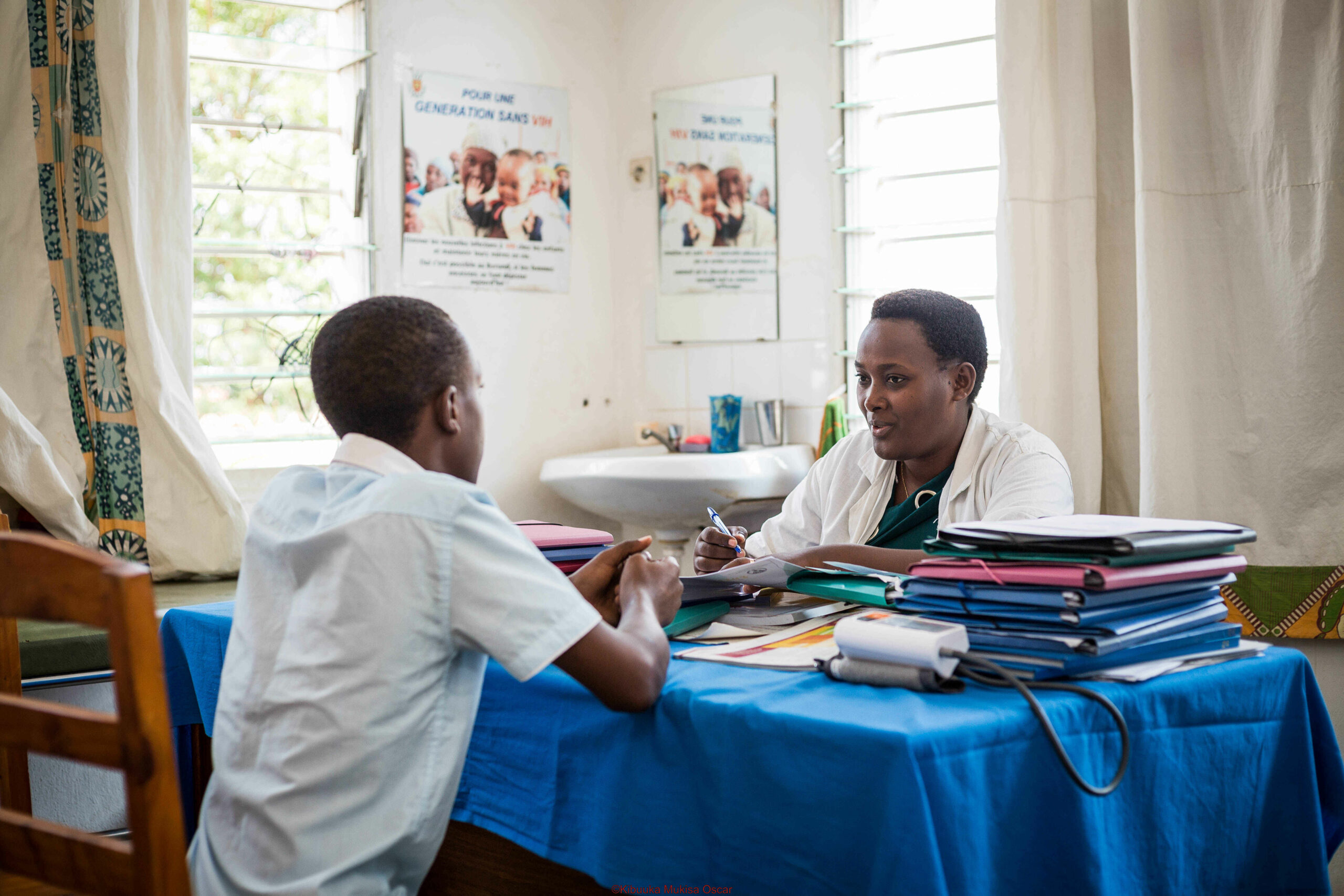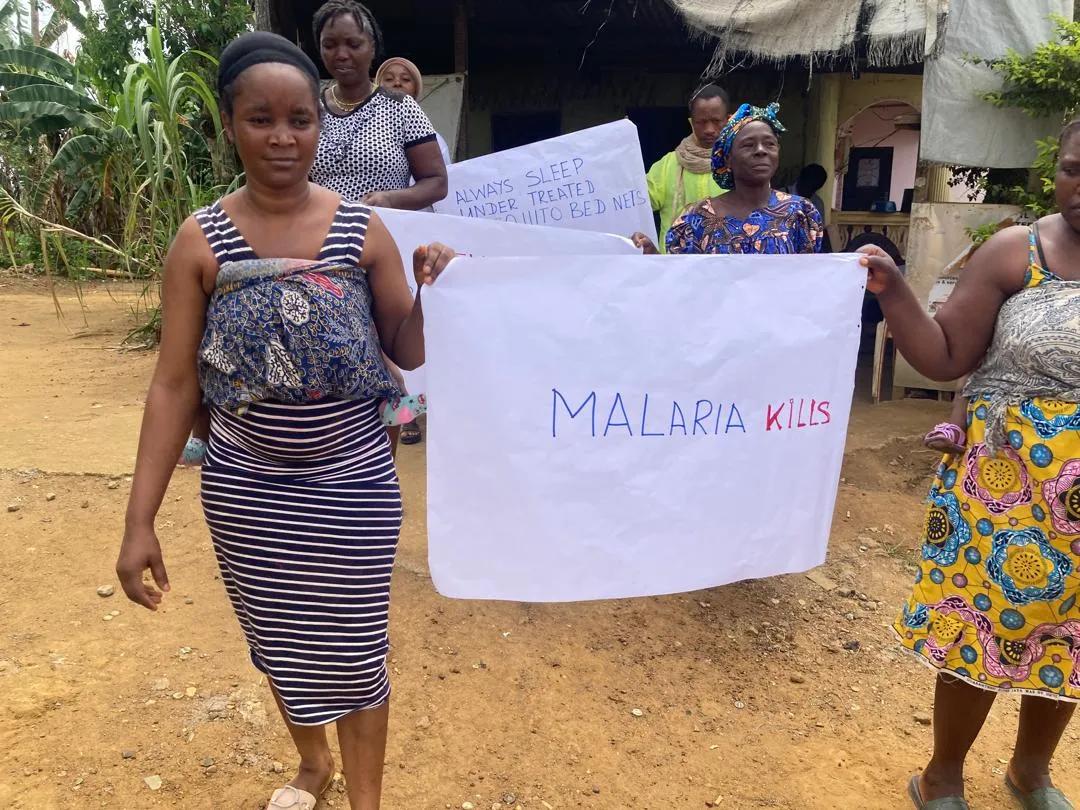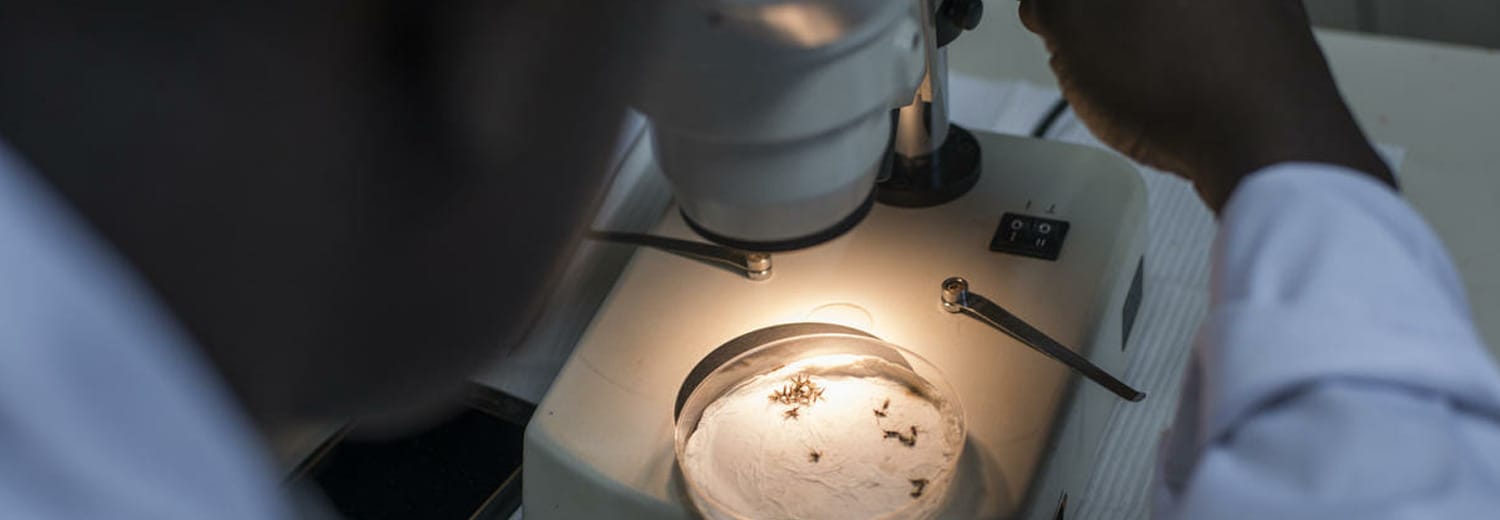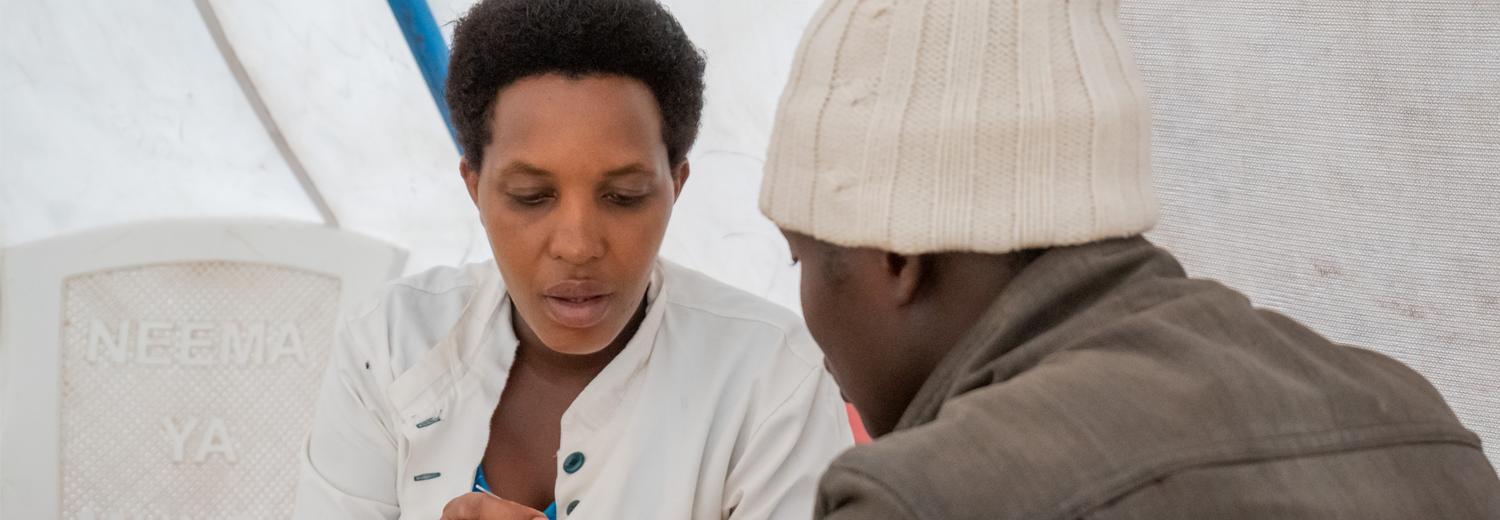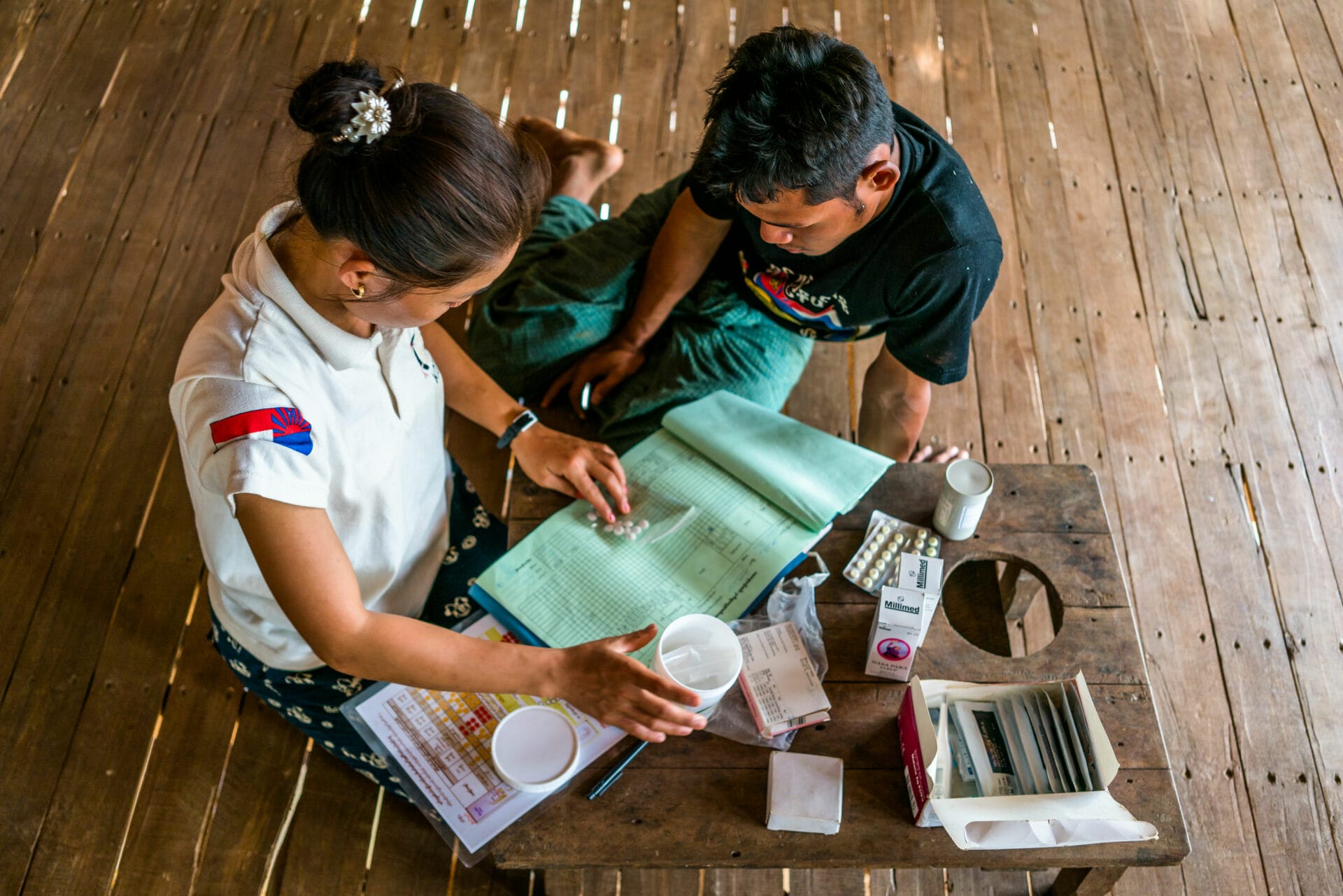L’Initiative: On the Front Line Against Malaria
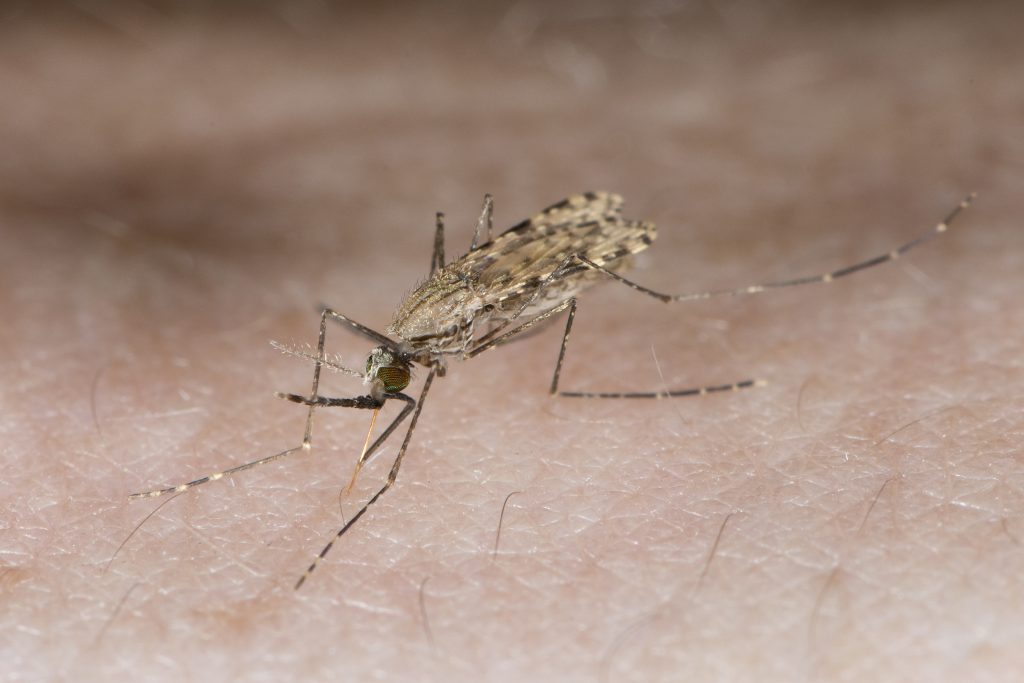
Malaria remains a threat. Half of the world’s population is still at risk, according to the World Health Organization. In 2023, 263 million people were affected, and 597,000 died from the disease—nearly all in Africa. One child dies of malaria every minute. Children under five represent three quarters of all victims. After two decades of major progress, momentum is slowing. Challenges are multiplying, growing more complex, and feeding into one another. On top of insufficient funding, humanitarian and migration crises—often linked to and worsened by climate change—are exacerbating the situation. Climate change poses enormous challenges that demand urgent adaptation. In early December 2024, L’Initiative organized a training in Rwanda focused on adapting prevention and control strategies to confront the climate-related impacts on malaria—a four-episode podcast produced on this occasion explores these issues. Rising mosquito resistance to insecticides—the vectors of the disease—and decreasing effectiveness of antimalarials are also major concerns. L’Initiative supports the deployment of innovative tools and multisectoral collaborative approaches, while also working to strengthen community-based efforts to scale up the health response to malaria.
Malaria thrives on injustice
Though preventable and treatable, it still kills—75% of victims are children under five, living in sub-Saharan Africa. The tools to defeat it exist. The fight against malaria requires action—now.
Climate Change: A Barrier to Malaria Control
Extreme weather events, variation in temperature, and climate change have multiple and wide-ranging impacts on malaria. They can increase transmission and disease burden. L’Initiative incorporates these climate-related challenges to maximize the effectiveness of the malaria response.
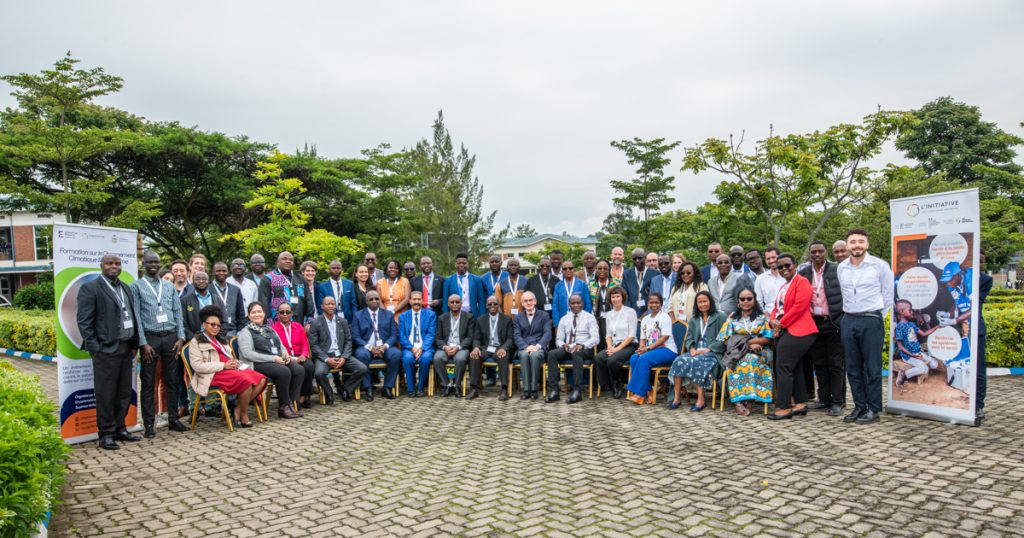
Adapting the Malaria Response to Climate Change
African countries, in particular, are facing a new challenge that is reshaping the fight against malaria: climate change. It alters the geographic distribution and seasonality of the disease, calling for urgent adaptation of prevention and control strategies. In early December 2024, L’Initiative and the Institut d’Enseignement Supérieur de Ruhengeri (INES-Ruhengeri) co-organized a training in Musanze, Rwanda, focused on the impact of climate change on malaria. National Malaria Control Program (NMCP) decision-makers from 19 French-speaking sub-Saharan African countries gathered to discuss integrated strategies that reflect this increasingly tangible reality.
Raising Voices in the Fight Against Malaria
In early December 2024, L’Initiative and the Institut of Higher Education of Ruhengeri (INES-Ruhengeri) co-organized a training session in Musanze, Rwanda, focused on the impact of climate change on malaria. In a four-episode podcast, L’Initiative explores this crucial issue through multiple voices. Doctors, a climatologist, and a modeler take turns explaining this new dynamic in the fight against the epidemic.

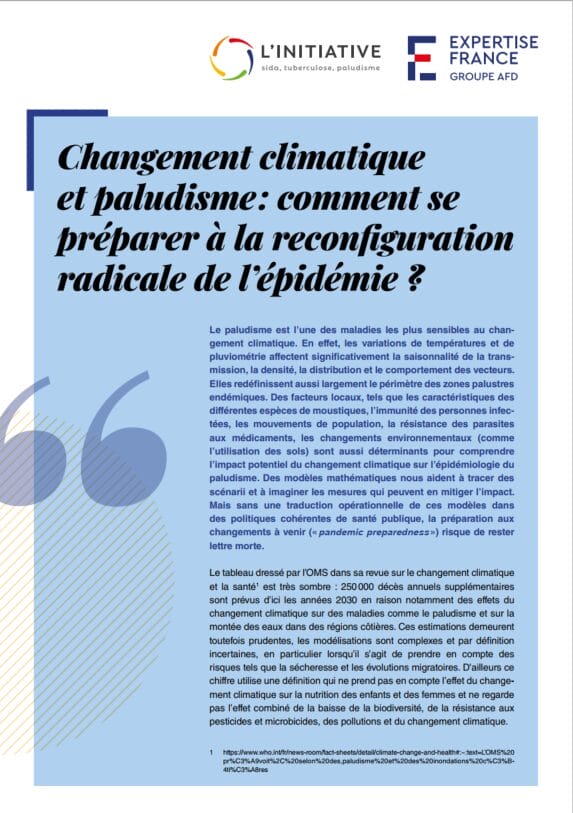
Preparing for the Reconfiguration of the Epidemic
L’Initiative contribue au renforcement des capacités des entomologistes dans les régions exposées au changement climatique. Elle soutient également le déploiement de stratégies de surveillance de l’évolution de la maladie. Des défis abordés sous le prisme de l’approche One Health (Une seule Santé), qui lie santés humaine, animale et environnementale.
The Key Role of the Community-Based Approach
Eliminating malaria requires the engagement and participation of local populations. L’Initiative supports a community-based approach—aligned with the Global Fund strategy—by helping build local capacity, especially among community health workers, to make healthcare accessible to all.
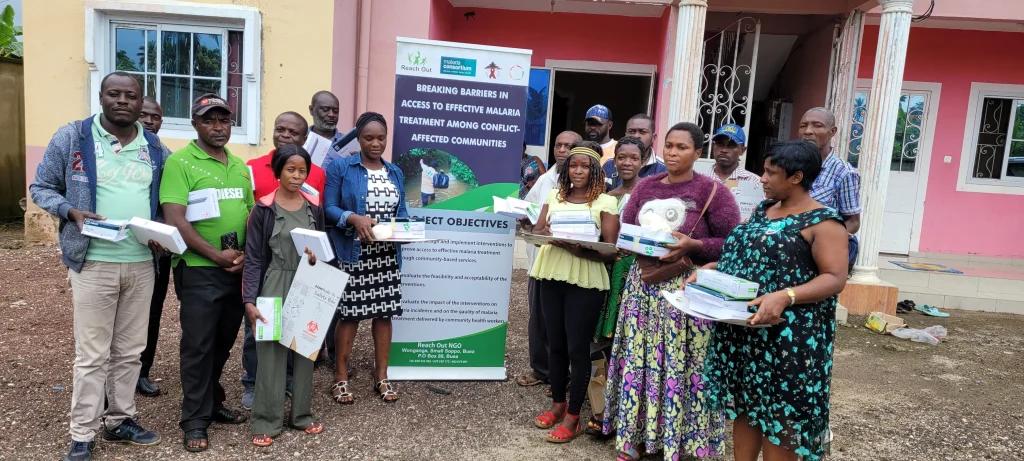
Fighting Malaria in Cameroon Through Community Collaboration
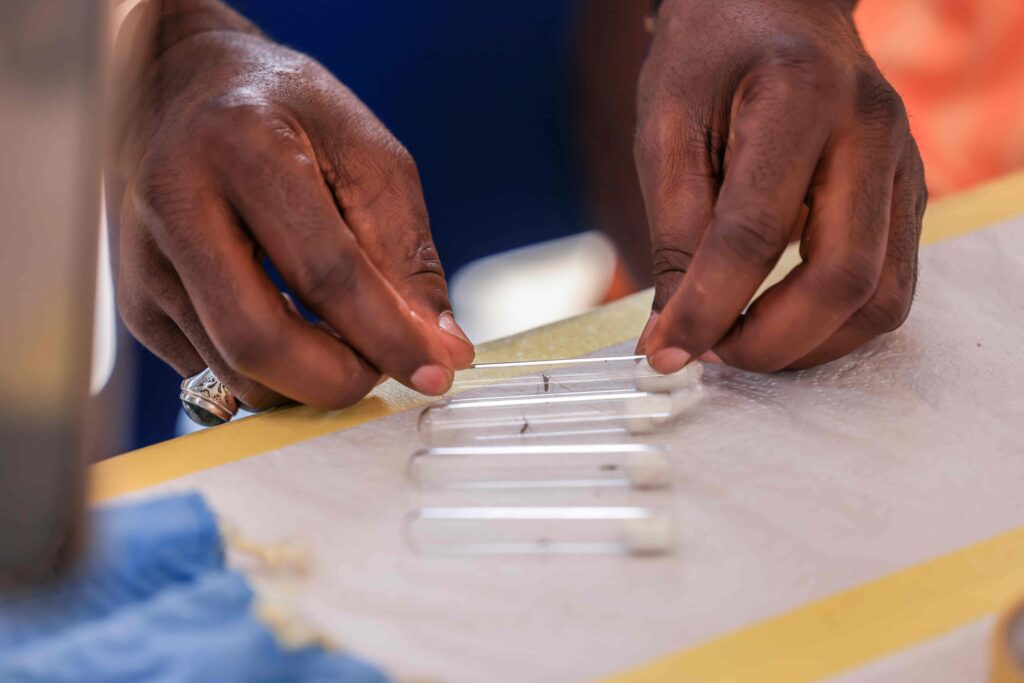
Malaria in Benin: Raising Awareness Within Communities
Innovating to Push Back the Epidemic
With climate change and growing resistance to insecticides and antimalarials, it’s crucial to develop new approaches and tools to curb malaria. Aware that progress depends on innovation, L’Initiative supports research to develop groundbreaking technologies.
TrapNet: An Innovative Method to Fight Malaria
Despite progress, malaria remains a serious health burden—now compounded by rising mosquito resistance to insecticides, which demands a rethink of existing control strategies. As part of the Prevent Malaria project, the Swiss Center for Scientific Research in Côte d’Ivoire (CSRS) has developed TrapNet, an innovative malaria prevention tool supported by L’Initiative. The team visited Korhogo and Abidjan, the pilot deployment sites for this project.

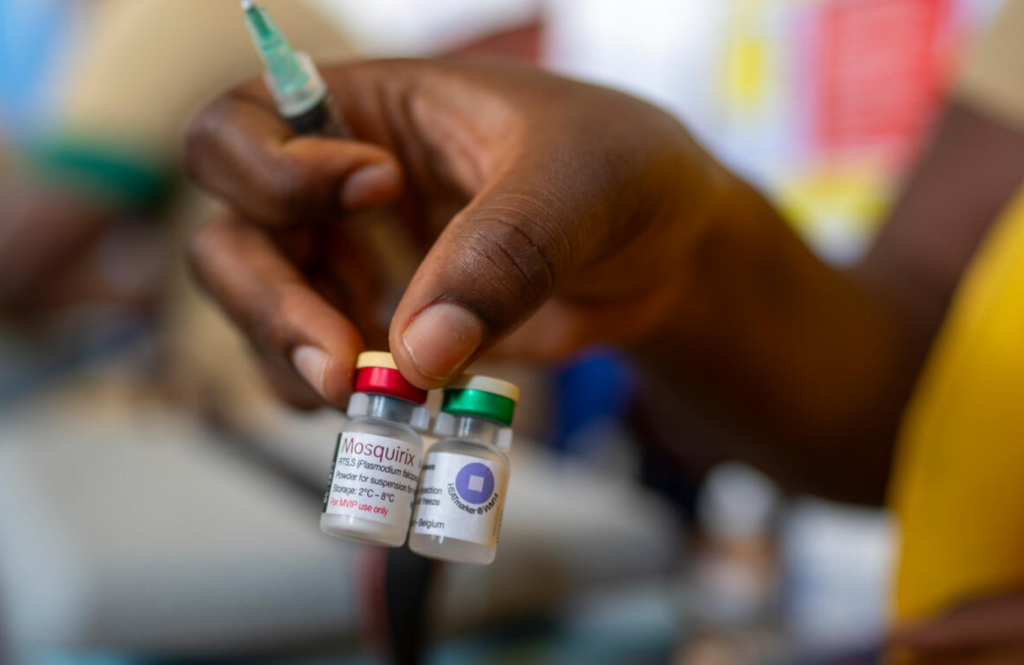
AMARETi: Combating Asymptomatic Plasmodium Carriage in Senegal
In Senegal, the fight against malaria continues, with nearly one million cases reported by the World Health Organization in 2021. In the Sahelian region in particular, malaria transmission is partly due to the asymptomatic reservoir of individuals carrying the Plasmodium parasite, which causes the disease. Led by epidemiologist Jordi Landier (IRD), together with El Hadj Ba (IRD Dakar) and Jean-Louis Ndiaye (Iba Der Thiam University of Thiès), the AMARETi project targets these asymptomatic carriers in the Kédougou region, in southeastern Senegal. The project includes two rounds of mass antimalarial drug administration at the beginning and end of the transmission season, combined with community-based activities designed with and for young adults—a high-risk group for parasite carriage. This interventional study builds on findings from the earlier observational MARS study, which updated the region’s epidemiological data and identified new opportunities to fight malaria. AMARETi will be evaluated through a randomized controlled trial in 50 villages in Kédougou, covering approximately 18,000 people. This intervention could help reduce seasonal transmission and lower mortality rates, advancing toward the goal of malaria elimination.
Supporting Operational Research
Science plays a central role in developing effective, locally adapted solutions to fight malaria. L’Initiative supports operational research to help implement responses that align with local realities and epidemiological contexts. The supported projects focus particularly on strengthening prevention programs and improving access to care for the most vulnerable populations. This work is carried out in close collaboration with national health authorities and research institutions in the concerned countries.
The DATP in Mauritania: Committed to Combating Epidemics
In Mauritania, strengthening the qualified workforce, improving health infrastructure, and securing the supply of medicines are key levers to intensify the fight against HIV, tuberculosis, and malaria. To address this challenge, L’Initiative contributed to the deployment of a unique Planned Technical Assistance Mechanism (DATP) in 2021. Dr. Chanelle Muhoza, resident malaria expert for the DATP, shares insights into this system and its malaria-related actions.
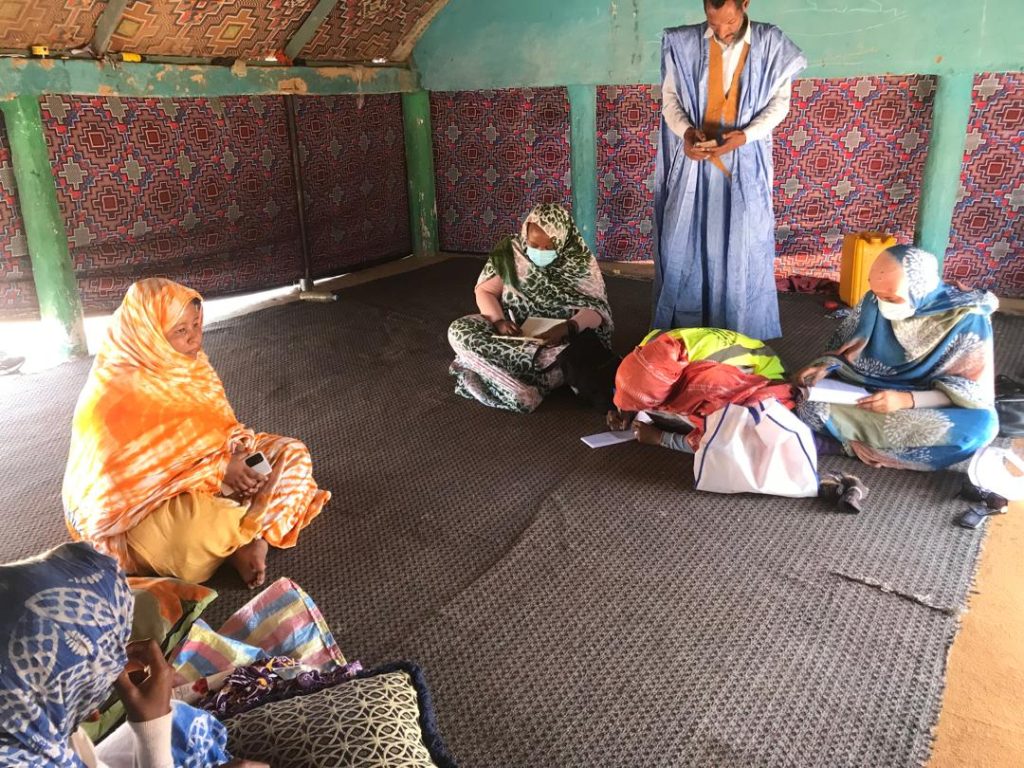
2024 Malaria Call for Expressions of Interest
In November 2024, L’Initiative’s Steering Committee decided to increase and diversify its investments in all aspects of malaria control—including epidemiological surveillance, vector control, early detection, treatment, and follow-up—while emphasizing the strengthening of community health systems. To this end, a Call for Expressions of Interest (CEI) was launched, aiming to invigorate and scale up community-driven strategies through partnerships with local stakeholders (national programs, associations, community health workers, opinion leaders, etc.). The goal is to promote health community initiatives in six priority sub-Saharan African countries, taking into account socio-cultural contexts, leveraging existing local know-how, and improving access to nearby healthcare services. Through this support, L’Initiative seeks to increase population engagement, improve access to care, and foster the adoption of preventive practices. Ultimately, the mechanism aims to overcome the stagnation in malaria control observed since the COVID-19 pandemic, reduce mortality and morbidity, and boost the resilience of health systems.
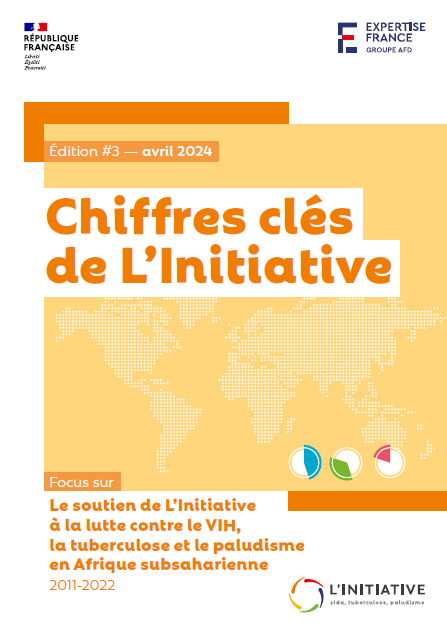
Key Figures #3: L’Initiative’s Support in the Fight Against Pandemics in Sub-Saharan Africa
This third edition of Key Figures explores the breadth and diversity of L’Initiative’s support. Sub-Saharan Africa is heavily impacted by HIV, tuberculosis, and malaria, making it a key focus area for L’Initiative, which works to strengthen national health systems across the region.

